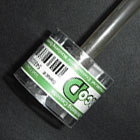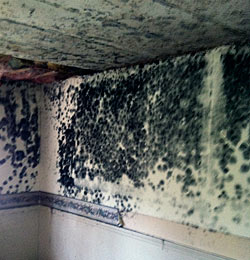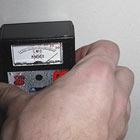Indoor Air Quality & Molds
Indoor air quality is critical to the well being of people who occupy or use buildings whether residential, industrial, educational or for any other use.Molds are natural and ubiquitous organisms which exist nearly everywhere on the planet. Typically they depend on two things to survive: moisture and food. For molds, virtually anything organic constitutes food: paper, wood, leaves, natural fibers, etc.
During their life cycle molds release spores, and these airborne elements are potentially harmful to humans. Their toxicity varies with type and concentration of dispersal.
Ill effects from mold and fungal spore releases can be as mild as a sore throat or as life-threatening as flu-like respiratory illness.
Desmarais Environmental's expertise in indoor air quality assessment and remediation planning has experience with virtually every species of mold common to the Northeast. Our air sampling and surface monitoring programs provide continuous data across customer-defined time periods.
Not all indoor air quality is related to mold and mold spores. OSHA regulates additional air quality issues such as fumes from chemicals, smoke, radon and other gases and contaminants that can result from improper handling of materials, faults in HVAC systems or other sources. Desmarais Environmental's expertise includes the identification and source location of these types of airborne contaminants.
For some highly vulnerable work environments, such as laboratories or chemical-based production facilities, we recommend the creation of protocols for regular monitoring.
Desmarais Environmental is your first line of defense in identification and remediation planning for any indoor air quality concerns.
Contact or Call Ray Desmarais: 603.664.5500




